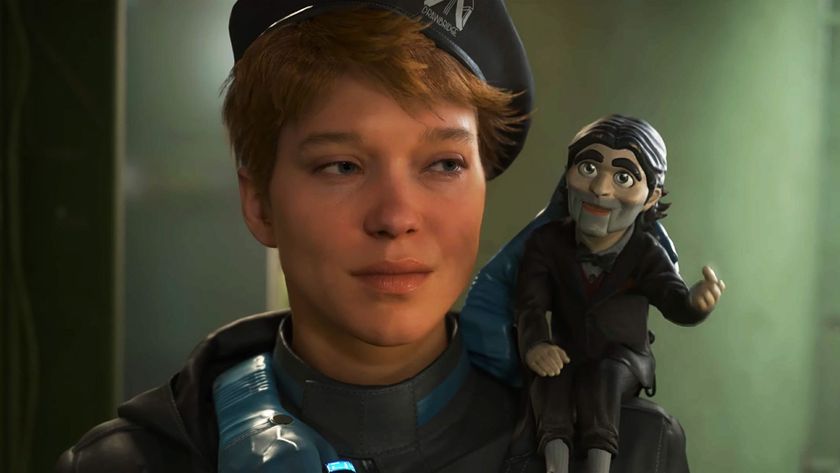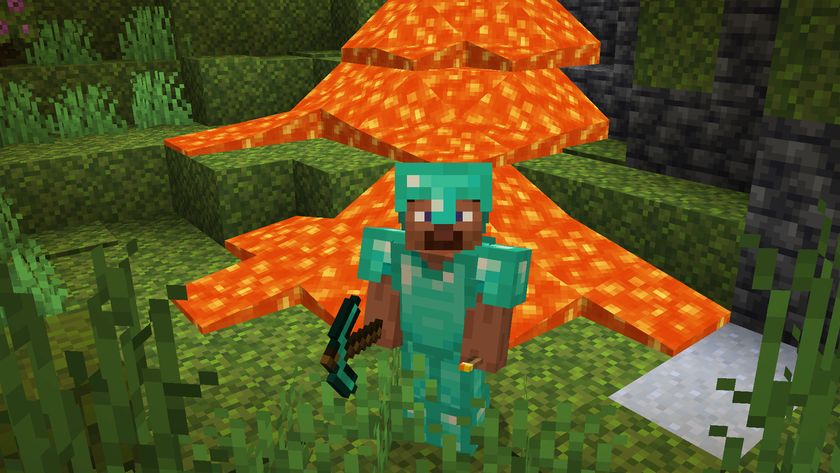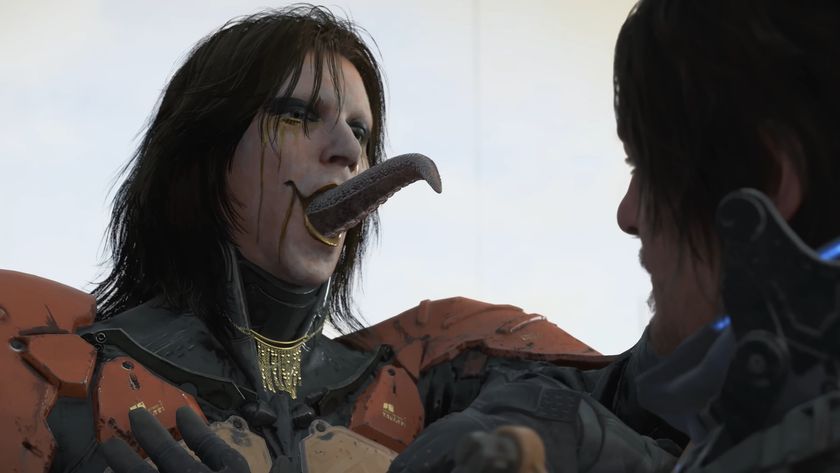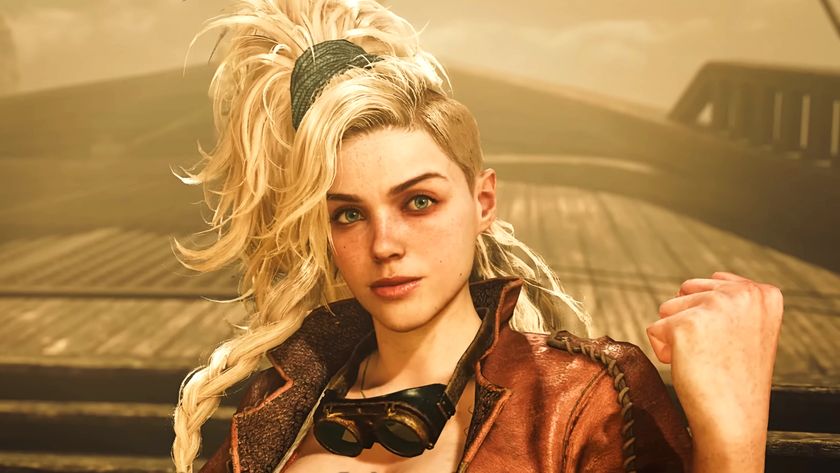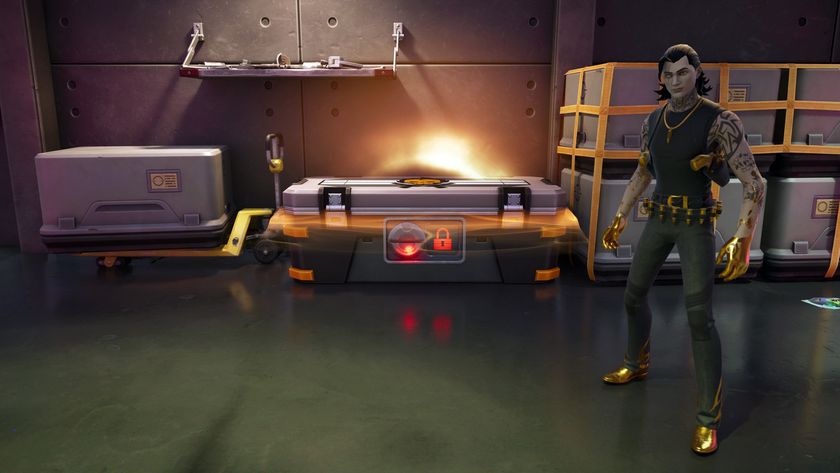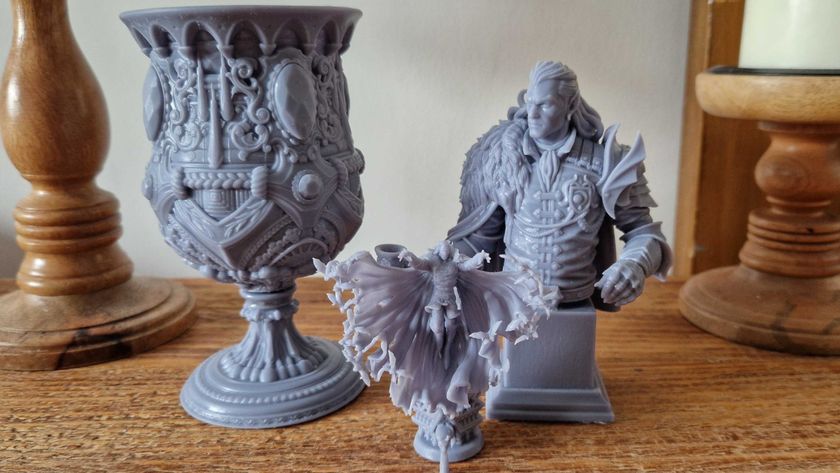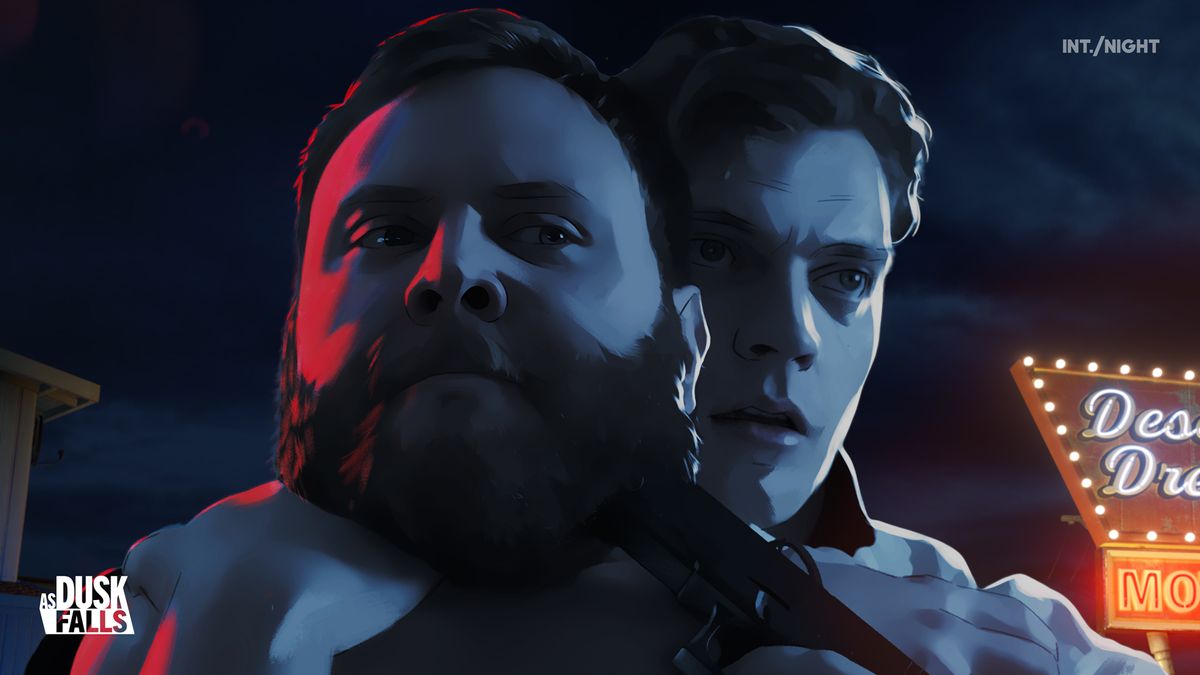
As Dusk Falls represents the next generation of narrative games. This interactive drama, the debut production from Interior/Night, is designed to sit at the crossroads between prestige television and story-driven video games. It's a tale about human characters navigating the trials and tribulations of everyday life, and of the hardships faced by those that find themselves lost within the expanse of the American Southwest. Set across three decades, As Dusk Falls will push us to explore the consequences that our actions can have on those that we leave behind.
"As a team, we are entirely structured around visual storytelling," begins Caroline Marchal, CEO and creative director of Interior/Night. "The first thing we made sure of is that we had a great script with compelling characters, characters with flaws and depth to them, and a proper journey that players will be able to craft themselves as the story unfolds."
Marchal knows a thing or two about interactive narratives. She spent a decade at Quantic Dream leading the game design teams on Heavy Rain and Beyond: Two Souls, before spending two years at Sony London Studio exploring innovative narrative concepts. She left in 2016 to establish Interior/Night with a diverse coalition of professional illustrators and industry veterans, with a desire to build inclusive and accessible video games. But I'm getting ahead of myself. First, we really need to talk about that art style.
A marriage between 3D film and 2D illustration
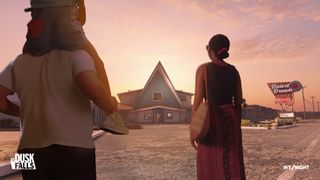
"So… what do you think?" Marchal asks gingerly; she's been waiting for an outside perspective on As Dusk Falls for four years. All I could think to respond was: "whoa, big Scanner Darkly vibes". The 2002 cult classic was, famously, shot on a digital camera before being animated using interpolated rotoscope – a painstaking animation technique in which illustrators trace over original live-action footage, frame-by-frame, to give it a distinctive animated look. As Dusk Falls is less pronounced than Richard Linklater's production, but the similarities are stark and the results impressive.
Marchal tells me that the painted graphic novel style of As Dusk Falls' visual aesthetic is the result of a blurring of lines between 2D illustration and 3D film capture. "We don’t have CG characters. We're not doing any mo-cap. We work with real actors and paint each image of the actors to get that illustrative, graphic look. We film the actors on a type of green-screen, and then we take that live-action footage and we integrate them on a 3D set."
"We are able to select the images from the live-action footage that really communicates the emotional beats we need to tell the story, and then we paint each image by hand and integrate the two together," Marchal explains. Surprisingly, Interior/Night has actually found this to be more flexible than traditional animation methods. "I didn’t want to do mo-cap this time. I’ve done a lot of games with performance capture in the past and, when you want to tell a specific story, you need a lot of specific animations – it balloons production."
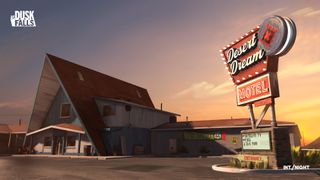
"We don’t have CG characters. We're not doing any mo-cap. We work with real actors and paint each image of the actors to get that illustrative, graphic look"
Caroline Marchal, INT/NIGHT
"This is actually less time-consuming than doing a complete performance-capture with 40,000 unique body animations for one game," laughs Marchal. The development of As Dusk Falls is, after all, a massive divergence from the way Quantic Dream made games; a studio which worked under the philosophy that greater polygonal count would make for greater emotional resonance.
Sign up to the 12DOVE Newsletter
Weekly digests, tales from the communities you love, and more
At Interior/Night, Marchal says her team of just 40 has been able to find such success with its chosen style because it can be "really precise and evocative" when framing scenes. With actors filmed on a soundstage, the studio is able to pinpoint subtle facial expressions and body language in the moment, and emphasise it in post with a digital paintbrush – all of which ensures that every shot that makes its way into the game is ultimately serving either a character moment or the broader story.
"It allows us to be really focused on what the characters are meant to feel. It's stripped-back animation, but it's consciously stripped back," she says, adding, "it was really important for us to find a visual storytelling style that would enable us to tell the story in the way that it deserved."
As Dusk Falls story in detail
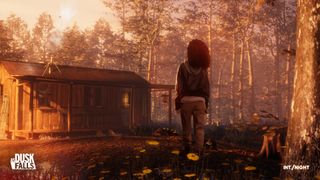

Game As Dusk Falls
Developer Interior/Night
Publisher Xbox Game Studios
Platforms Xbox Series X, Xbox One, PC
Release TBC
That story is framed around a family moving from California to Missouri, in an attempt to start over from a history of job loss, marital strife, and myriad other relatable human problems that fit decidedly human characters. The game begins in 1999, as the family of three stop off in a motel in the middle of a desert after their car breaks down, only to be faced with another family and a tragedy following a robbery gone wrong. "From there, we carry on the story. We go back into the past – sometimes a few hours, sometimes a few days, and sometimes a few months – and then we go forward in time too."
As Dusk Falls is a story told over 30 years. The little girl you see in the trailer, for example, will later become a central part of the tale, where you'll explore how the consequences of earlier actions have helped shape her character and world view. "Can you start over by moving home? Can you overcome your past? These are questions we'll be asking the player. This applies to the little girl, for example; can she overcome what she went through as a child and how will it shape her future, what sort of adult does she want to become?"
"The story spans across three decades and is focused around two families, and you'll swap points of view between the two," continues Marchal. "You’ll be able to play and experience this story from different points of view. It's just like in a show, really, where sometimes you have your main character, like a Don Draper, but sometimes you'll switch to another character to see events from their perspective."
Marchal points to prestige TV – True Detective, The Wire, Fargo, Mad Men, and Breaking Bad, for examples – as big points of inspiration, particularly with respect to the scope of their stories and the complexity of their intertwined narratives. In an era of game design where many developers appear to use movies as touchstones, Interior/Night is looking to novels and television for guidance when it comes to complexity of characters, structure, and overall pacing.
"It’s all about the scope, because games last several hours, whereas movies are a lot shorter. And just look at the scope and the depth of characters that exist in TV at the moment, it’s second to none. And then there's the boldness of the subject matter that TV shows... if you look at Fargo or True Detective, for example, shows that are just about a tiny moment in life that a game would never usually explore."
The evolution of narrative games

While Interior / Night isn't quite ready to discuss how As Dusk Falls will play, Marchal is keen to stress that the studio has been intently focused on delivering a game that can be enjoyed by anybody that has even as passing interest in interactive storytelling, regardless of whether they are fluent with the language of video games. "Our goal is really to be super-broad and accessible. It’s not about how skilled you are, or how fast you are with your thumbs, it’s really about how well you can understand the context of the story – that you can understand what’s happening, how the characters feel, and how you feel about them."
"In the narrative genre, the depth of gameplay comes from the relationship you create with the characters and the dynamic of the story," Marchal continues. "It's those relationships… a bit like in a TV show, right? You've got these characters that you spend so much time with that it's as if they are truly alive; people that you know really well. We’re really trying to capture that with this game; we want compelling characters that you can relate to."
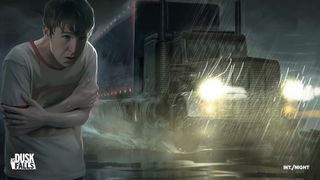
"When you make decisions, when you guide a character along their path, what you reveal about yourself is really, really interesting"
Caroline Marchal, INT/NIGHT
Where As Dusk Falls ultimately distances itself from any other entertainment medium, however, is in the way that the decisions made will ultimately reflect a piece of our own consciousness and bias back on us. That's where the true power of narrative games lies, and it's something Interior/Night is dialing in to. "And in return, you'll learn about yourself as you play the story. That's what's great with interactivity. When you make decisions, when you guide a character along their path, what you reveal about yourself is really, really interesting. Video games bring agency to a narrative, in a way that other mediums can't."
Having spoken to Marchal and seen teasers for the game, I get the sense that input will be limited. The creative director stressed that As Dusk Falls will integrate its gameplay directly with the narrative, and that the art style is designed to accentuate both elements of the game. Marchal points to the likes of What Remains of Edith Finch, Her Story, and Oxenfree as great examples of the genre, not to mention Netflix's Black Mirror: Bandersnatch – narrative games where your competency with a controller never becomes a barrier to enjoyment or progression. With As Dusk Falls, Marchal wants to create a narrative game that can change the fabric of the genre, and push storytelling forward in games in the same way prestige shows have done for television.
"We think now is a great time to share new types of narrative experiences. When you look at what's happening with TV and games converging with interactive stories, with how savvy audiences have become as they continue to consume really elaborate stories… it's just a great time for us to go out there and carve our own path with something different."
As Dusk Falls is developed by INT/NIGHT for Xbox Series X, Xbox One, and PC. It doesn't have a release date, but Microsoft has confirmed that it will launch through Game Pass when it does.

Josh West is the Editor-in-Chief of 12DOVE. He has over 15 years experience in online and print journalism, and holds a BA (Hons) in Journalism and Feature Writing. Prior to starting his current position, Josh has served as GR+'s Features Editor and Deputy Editor of games™ magazine, and has freelanced for numerous publications including 3D Artist, Edge magazine, iCreate, Metal Hammer, Play, Retro Gamer, and SFX. Additionally, he has appeared on the BBC and ITV to provide expert comment, written for Scholastic books, edited a book for Hachette, and worked as the Assistant Producer of the Future Games Show. In his spare time, Josh likes to play bass guitar and video games. Years ago, he was in a few movies and TV shows that you've definitely seen but will never be able to spot him in.
